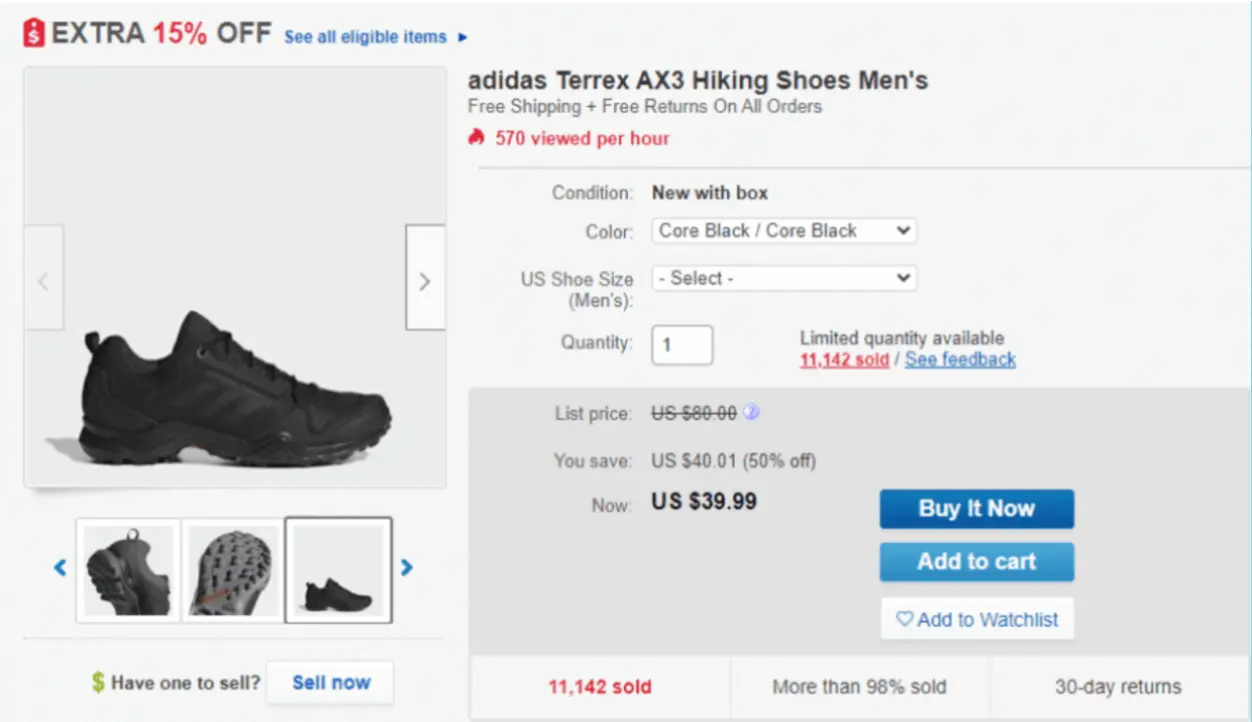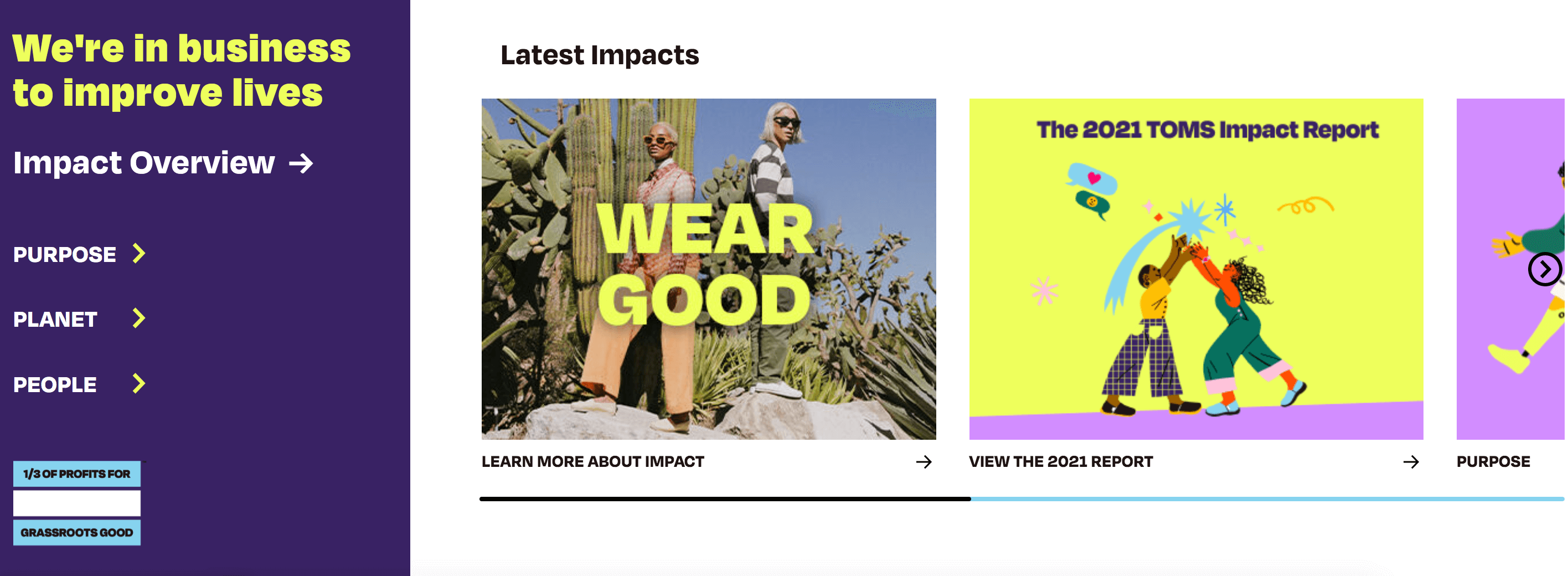Selling is about promoting your products and services the right way. To do that, you need to know what your target customers think. When you understand your target buyers, you can develop marketing strategies that result in conversions.
In short, understanding customer psychology is critical to marketing and sales success. Once you've picked the perfect business name, how can you use customer psychology to drive eCommerce sales?
Let’s discuss five ways and some of the tools you can use.
5 Ways You Can Use Customer Psychology to Drive Sales (and the Tools that Can Help)
- Social proof
- Scarcity
- Emotional connect
- Reciprocity
- Consistency
Customer psychology or consumer psychology is the study of why people buy things. When you base your marketing strategies on these five principles that stem from our proven understanding of consumer behavior, you can persuade your target buyers to take the desired action, such as purchasing from your store.
1. Social proof
People naturally follow the actions of others. The logic is this: if many people behave in a certain way, it must be right. That, in a nutshell, is the essence of social proof.
Incorporating social proof into your marketing strategy doesn’t have to be overly complicated. You must show your target audience that many people have already taken the action you want them to take: buying from your store. This is known as action-based social proof.
This is precisely what online retail giant eBay does. Looking at a typical product page, you will see many elements based on social proof.
For example, eBay tells you how many people have viewed the product and how many have bought it (570 views per hour and 11,142 total sales, respectively, in this case):

Source: eBay
There’s another way you can use social proof to drum up sales. Instead of focusing on how many people purchased your product, you can show how many people love it.
The best way to do this is by using reviews and testimonials. This is also known as preference-based social proof.
Here’s how Brooklinen, which sells bedding and other home goods online, leverages preference-based social proof:
 Source: Brooklinen
Source: Brooklinen
Each product page shows the number of reviews of each product, 62,556 in this case, and its overall star rating. When you click on the stars, this is what you get:
 Source: Brooklinen
Source: Brooklinen
To be clear, both action-based and preference-based social proof work. It all depends on your goals and how your pages look.
Use POWR to create your eCommerce website for a seamless online experience for your customer and leverage social proof to show how many people have bought and loved your product.
2. Scarcity
People are naturally motivated by the thought that they might miss out on an opportunity.
A study by Stephen Worchel, published in the Journal of Personality and Social Psychology, asked participants to choose between a jar with two cookies and another identical jar with ten cookies.
They overwhelmingly chose the jar with two cookies. That’s because the participants assumed that the cookies in the first jar were in-demand and, therefore, of higher quality.
In other words, when an item is scarce, its attractiveness level increases. The fear of missing out (FOMO) is a powerful marketing tool.
You can drum up a sense of scarcity by showing that your products are in limited supply. Here’s an example from Amazon, the world’s biggest online retailer:
 Source: Amazon
Source: Amazon
Telling potential buyers how many units are left (in our example above, it’s “only 3 left in stock - order soon”) can be all it takes to nudge potential customers to hit the “add to cart” button and check out.
You can generate a sense of urgency, too. Barnes and Noble is an example of a store that leverages urgency to get potential buyers to purchase. It makes it clear on its website that each offer has a limited lifespan.
 Source: Barnes and Noble
Source: Barnes and Noble
The result? Website visitors considering buying something will do so more quickly because they don’t want to miss the offer - and those browsing might be persuaded to buy.
You can use a scheduling app to plan your sales promotions and ensure you always have enough team members to handle the rush of new customers!
3. Emotional connect
People don’t always act based on intellect. According to Psychreg, emotions can consciously and unconsciously drive and lead people. Sometimes, when people do something, it’s not because the pros far outweigh the cons. It’s because they feel something when they do it.
You can leverage the fact that people are emotional beings in your marketing strategies. Instead of telling potential customers the benefits of your products, you can show them how they will feel if they buy from you. To convince people to purchase, those feelings you invoke should be positive.
For example, shoe retailer Toms leverages the fact that each purchase from its store helps local partners “working to create positive change” in three areas. You can read about Tom’s mission in its “Impact” section:
 Source: Toms
Source: Toms
But that same message of altruism is spread across other pages, including on its homepage:

Toms’ message is clear: If you buy from Toms, you’ll do good and feel great.
Evoke emotions in your potential customers, and that emotional connection they form with your brand will push them to take your desired action. POWR Galleries can help you display photos and videos that evoke emotional responses.
4. Reciprocity
Reciprocity is a concept in social psychology. It simply means people feel compelled to respond to a positive action with another positive step.
You can leverage the concept of reciprocity to drive sales by offering value to potential customers. For example, you might offer a free ebook/ebook maker or a downloadable checklist.
Use POWR Form Builder to create the sign-up forms. You can also provide a free product along with their first purchase or a discount for returning customers to encourage repeat business.
Rack Room Shoes has built its entire business model around reciprocity marketing. Regardless of the time of year or shoe style, its inventory is based on a BOGO offer.
Source: Rack Room Shoes
Although the offer may change from Buy One, Get One free to Buy One, Get One 1/2 off, the sale remains the same -- and never stops.
By following this model, they have continuously boosted sales and trustworthiness within the footwear marketplace year-over-year, in-store and online.
5. Consistency
People want to appear consistent. That’s the psychological principle that explains why people strive more to achieve their goals when they announce them publicly. People want to show they are committed to following through on what they say.
You can use this psychological principle to increase sales. All you need to do is get your prospects to commit to your brand. Once they do that, they will do what it takes to follow through on that commitment.
Warby Parker, an online retailer of prescription glasses and sunglasses, knows how to leverage people’s psychological tendency to be consistent. The store gets its prospects to commit to the brand by allowing them to try five frames at home for free:
 Source: Warby Parker
Source: Warby Parker
The store knows they will likely push through with a purchase once potential customers get their hands on those frames and try them on.
There are other ways to leverage consistency as a psychological principle in marketing. On your eCommerce site, you can recommend other products your customers can buy to complement a previous purchase.
Cross-selling and upselling are strategies based on people’s tendency to be consistent. Once customers make that initial purchase, they are more likely to make another.
In Closing
Customer psychology tells you much about how consumers act when faced with specific situations. When you understand your customers, you can create marketing strategies that work. You generate conversions, increase revenue, and grow your business when your marketing works.
In this article, I gave you five ways to use customer psychology to increase sales. You can leverage social proof, scarcity, emotionally connect, reciprocity, and consistency in your marketing efforts. You will get potential customers to take your desired action when you do.
In short, the formula for eCommerce success is simple: Understand your customer, create strategies based on that general understanding, and execute them consistently.
 |
Owen Jones is the Senior Content Marketer at Zoomshift, an online schedule maker app. He is an experienced SaaS marketer specializing in content marketing, CRO, and FB advertising. |


